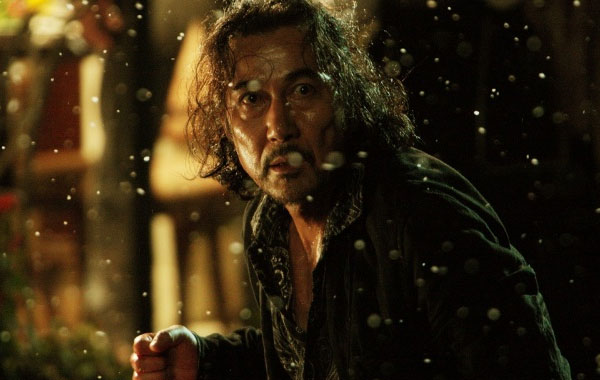
***½/****
starring Koji Yakusho, Nana Komatsu, Satoshi Tsumabuki, Jo Odagiri
screenplay by Tetsuya Nakashima, Miako Tadano, Nobuhiro Monma, based on the novel by Akio Fukamachi
directed by Tetsuya Nakashima
by Walter Chaw Takashi Miike's Natural Born Killers, essentially, with a bit of the old Park Chan-wook ultra-violence (or is it Shohei Imamura's A Clockwork Orange? Tarantino's Hardcore?); I'm finding it next to impossible to talk about Tetsuya Nakashima's The World of Kanako free of larger contexts, and its short-circuiting of my hard drive is perhaps intentional. The film is extremely stylish, distractingly so–or it would be if not for a central, anchoring performance from Koji Yakusho as disgraced detective Akikazu Fujishima, demolished by a long drunk and roused back to furious, ugly action by the disappearance of his daughter, Kanako (Nana Komatsu). Yakusho is so good, so grounded in his self- destruction and loathing, so extraordinary, really, from calamity to atrocity to spurious bloodletting, that watching him in this Grand Guignol is something like a true privilege. He's manifested possibly the most disgusting hero in the history of such things (Mickey Rourke's Harry Angel? Eagle scout), a creature of this dank, abattoir noir who gets progressively filthier, baser, as the picture unravels. His performance, not to gild the lily, is fucking genius.
